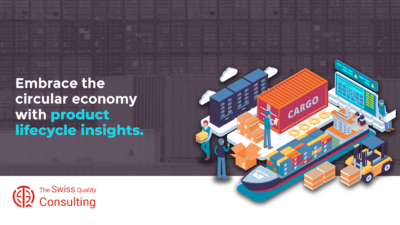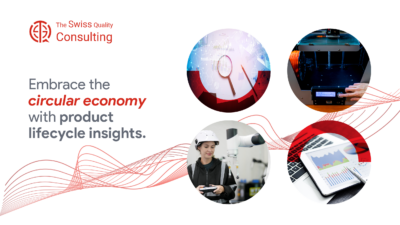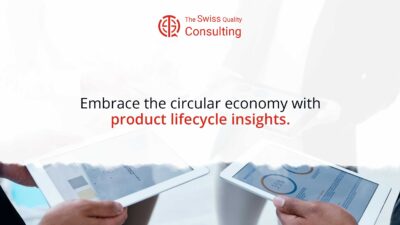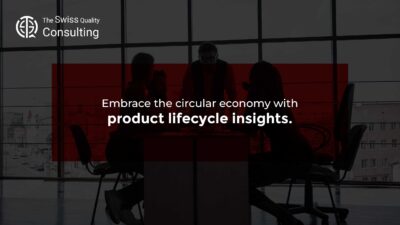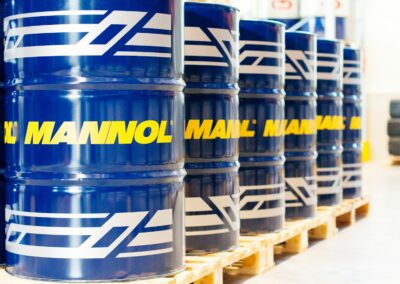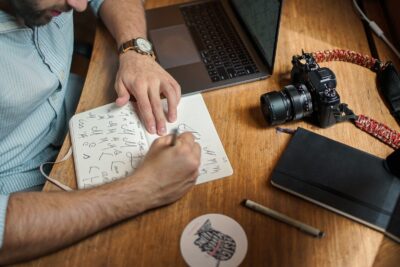Leveraging Circular Economy Principles for Sustainable Product Design in Saudi Arabia and UAE
The Importance of Circular Economy in Modern Product Design
In today’s rapidly evolving global market, the adoption of circular economy principles in product design has become increasingly crucial. These principles emphasize the importance of designing products for durability, repairability, and recyclability, which significantly reduces waste generation and promotes resource efficiency. For regions like Saudi Arabia and the UAE, where rapid industrialization and urbanization present unique environmental challenges, embracing a circular economy is essential for sustainable development and long-term economic resilience.
Circular economy principles aim to create a closed-loop system where products and materials are continuously reused, repaired, and recycled, minimizing the need for virgin resources. This approach not only conserves natural resources but also reduces environmental pollution and greenhouse gas emissions. In cities like Riyadh and Dubai, implementing circular economy practices can help manage the growing waste problem and foster a more sustainable and resilient economy.
One of the key aspects of circular economy principles is designing products with durability in mind. Durable products have a longer lifespan, reducing the frequency of replacement and the amount of waste generated. By focusing on high-quality materials and robust construction, manufacturers can create products that withstand the test of time and usage. This shift towards durability not only benefits the environment but also enhances consumer satisfaction and brand loyalty.
Implementing Repairability and Recyclability in Product Design
Repairability is another critical component of circular economy principles. Designing products that are easy to repair extends their useful life and reduces waste. This involves using modular components that can be easily replaced or upgraded, providing consumers with the tools and information needed for repairs. In Saudi Arabia and the UAE, promoting repairability can lead to the development of a thriving repair industry, creating jobs and reducing the environmental impact of discarded products.
Recyclability is equally important in circular economy principles. Products should be designed with materials that can be easily separated and recycled at the end of their life cycle. This involves selecting materials that are widely recyclable and designing products in a way that facilitates disassembly. In cities like Riyadh and Dubai, where waste management infrastructure is continuously evolving, focusing on recyclability can significantly enhance the efficiency of recycling programs and reduce the burden on landfills.
Artificial intelligence (AI) and blockchain technology can play a significant role in implementing repairability and recyclability in product design. AI can analyze data on product usage and failure rates, providing insights into areas that need improvement. This data-driven approach allows manufacturers to design products that are easier to repair and recycle. Blockchain technology can enhance transparency in the supply chain, ensuring that materials used in products are traceable and recyclable. This level of transparency is crucial for building consumer trust and promoting sustainable practices.
Driving Business Success through Circular Economy Practices
Leveraging Circular Economy for Corporate Sustainability
Businesses in Saudi Arabia and the UAE can greatly benefit from integrating circular economy principles into their corporate sustainability strategies. By adopting these principles, companies can reduce their environmental footprint, comply with regulatory requirements, and enhance their brand reputation. This commitment to sustainability can attract environmentally conscious customers and investors, providing a competitive edge in the market.
The adoption of circular economy principles also offers significant cost-saving opportunities. Designing products for durability, repairability, and recyclability reduces the need for raw materials and lowers production costs. Additionally, companies can generate new revenue streams by offering repair services, selling refurbished products, and recycling materials. In the dynamic business environments of Riyadh and Dubai, these innovative approaches can drive long-term growth and profitability.
Leadership and effective project management are essential for successfully implementing circular economy practices. Business executives and project managers must ensure that all aspects of these initiatives are meticulously planned and executed. This involves coordinating with suppliers, understanding the specific needs of different products, and ensuring that all team members are adequately trained to support these sustainable practices.
Leadership and Project Management in Circular Economy Implementation
Effective leadership and project management are crucial for the successful integration of circular economy principles in product design. Business executives and project managers must ensure that all aspects of these projects are meticulously planned and executed. This involves coordinating with technology providers, understanding the specific needs of different product categories, and ensuring that all team members are adequately trained to support these sustainable practices.
In the dynamic environments of Riyadh and Dubai, where rapid development and innovation are the norms, robust project management practices are essential. By adopting best practices in project management, businesses can ensure that their circular economy initiatives are well-structured and efficient. This includes setting clear objectives, allocating resources effectively, and continuously monitoring progress to identify and address potential issues promptly.
Training and development are also critical components of successful project management in this context. Business leaders must invest in building the skills and capabilities of their teams, ensuring they are equipped to handle the complexities of circular economy practices. By fostering a culture of continuous learning and improvement, organizations can enhance their resilience and ensure they are always prepared to respond to various environmental and operational challenges effectively.
Additional Considerations for Business Leaders
Business leaders must recognize the importance of investing in technology and infrastructure that supports the integration of circular economy principles. This involves not only the initial deployment of AI and blockchain systems but also the ongoing maintenance and upgrades necessary to keep these systems running efficiently. Additionally, fostering partnerships with technology providers and environmental organizations can enhance the overall effectiveness of sustainability strategies, ensuring that businesses are well-prepared for any eventuality.
Continuous Improvement and Adaptation
Finally, it is essential to establish a framework for continuous improvement and adaptation. As new technologies emerge and environmental challenges evolve, circular economy practices must be regularly reviewed and updated. By staying ahead of technological advancements and incorporating them into existing strategies, businesses and authorities in Riyadh and Dubai can ensure that their sustainability efforts remain robust and effective. This proactive approach not only enhances resilience but also positions organizations as leaders in innovation and environmental stewardship.
Conclusion: Building a Sustainable Future with Circular Economy Principles
The integration of circular economy principles into product design is essential for enhancing sustainability and reducing the environmental impact of production and consumption. By leveraging modern technologies such as AI and blockchain, authorities and businesses in Saudi Arabia and the UAE can develop robust and reliable strategies for implementing these principles. These advancements not only improve resource efficiency and waste reduction but also drive business success and innovation. As we continue to embrace these technologies, it is crucial for business leaders to prioritize collaboration, adaptability, and continuous improvement, ensuring that we are always prepared for the challenges of the future.
#CircularEconomy #SustainableDesign #WasteReduction #Durability #Repairability #Recyclability #AI #Blockchain #SaudiArabia #UAE #Riyadh #Dubai #BusinessSuccess #Leadership #ProjectManagement



